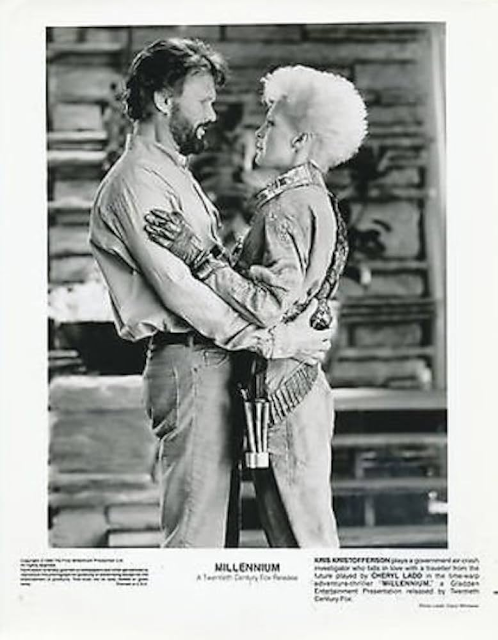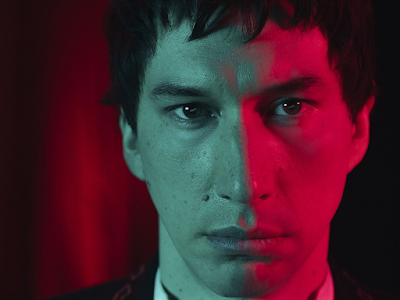Francis Ford Coppola's enterprising, alternate-reality venture, Megalopolis, has been brewing over several decades (much like Kevin Costner's Horizon) and now manifests in a time where it may or may not parallel current events. It's reminiscent of Fritz Lang's Metropolis, but once the cards are dealt, it feels like a verbose and open-ended retelling of Fellini Satyricon: more surreal than concrete.
As constructed, Megalopolis reminds us that those in power determine our lives, whether we like it or not, and among the unqualified stakeholders, there's always a tug of war. The sad thing is, those in power don't do a lot of good within their perimeters, and who gets hurt in the long run? Yep, the little guy, though this is never explicitly stated within Coppola's mythology.


In the garrulous fight to do what's right on the populace's behalf, Adam Driver's architect/playboy Cesar Catalina (who's fashioned a vague, reality-altering/time-stopping device called the Megalon) combats Giancarlo Esposito's Mayor Cicero regarding how things should be run (or revamped): the former wanting to overhaul the Gotham-geared New Rome into a blessed utopia, and the latter seeing the attempt as impractical whimsy. I suppose one could argue that Catalina represents Coppola butting heads with a studio honcho, in this case, the stubborn Cicero. (In a way, though, hasn't this allegory been covered in a more upfront way? Consider Paramount+'s The Offer, the melodramatic making of The Godfather.)

Each power faction has its members, some swindlers and others friendly pawns, who speak in awkward tongues and bounce off Catalina and Cicero like walk-on pinballs with intermittent, relationship-crossing segues. They're portrayed by Jon Voight, Dustin Hoffman (how's that for a Midnight Cowboy, under-the-same-banner reunion of sorts?), James Remar, Shia LeBeouf, Talia Shire, Jason Schwartzman, Grace VanderWaal, Nathalie Emmanuel, Kathryn Hunter, Laurence Fishburne (the fable's narrator) and sexy Aubrey Plaza, who as the power-hungry journalist Wow Platinum, brings much needed levity to the many brooding sequences, the majority of which are weighed by circling discussions and translucent, hallucinogenic imaginings that appear plucked straight from ancient Rome, Greece or, dare I say it?, the Third Reich. (Also, as a showmanship extra, a local actor is assigned to appear at the theater of one's choice to interact with Catalina, positioned below the screen, scribbling away for a quick, Zoom-inspired exchange, summoning shades of Rocky Horror and The Room: a neat, come-and-go gimmick, really).

So, do any of these movie's exchanges prove that any one ideology or character is right? Such is never defined (any more than the Megalon and its powers), leaning on audiences to decide. (I guess it all comes down to one's socio-political position ... maybe). I, for one, can see the appeal in the long-term, artistic path, but where's the guarantee that all will turn out for the better? On this basis, perhaps the "populist" view is the wiser track (i.e. to serve the downtrodden here and now instead of making that demographic wait), and yet ...
It's safe to say that Megalopolis abides by a huge, consuming, subplot-anchored question mark (the type that Ed Nygma might dangle if only he knew the answer). The philosophical ambiguity is, therefore, its distinction, which is sometimes its weakness and sometimes its strength, but the erratic tottering, no matter how precocious, could steer it to sink.
Megalopolis is one of those misapprehended creations that, even if it fails now, is destined to be reconsidered (if only by Coppola's association), perhaps prompting affluent scrutiny in a future still unborn. Will this eventually place Megalopolis on the same shelf as Aldous Huxley's Brave New World, Ray Bradbury's Fahrenheit 451, Frank Herbert's Dune and Ayn Rand's complementing set, Atlas Shrugged and The Fountainhead? Per Megalopolis' insinuation, that all depends on where our pietistic bureaucrats succeed or fail.



















































